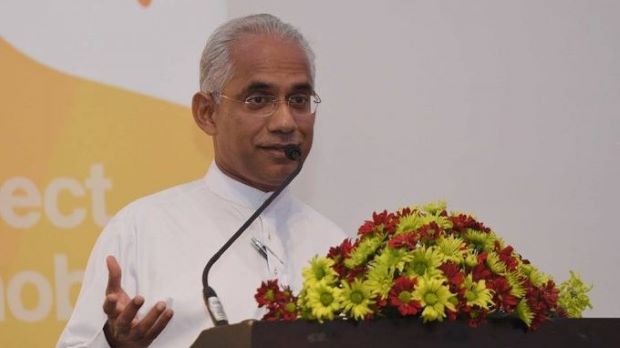SJB opposes sale of strategic SOEs, wants competition
By Himal Kotelawala
COLOMBO – Sri Lanka’s main opposition party the Samagi Jana Balawegaya (SJB) is opposed to the privatization of strategically important state-owned enterprises (SOEs) but also advocates an end to state monopoly in sectors like power and energy through competition, the party said.
SJB MP Eran Wickramaratne told reporters on Monday (8) his party does not support the sale or privatization of the Ceylon Electricity Board (CEB) and the Ceylon Petroleum Corporation (CPC), both loss making SOEs, but supports the facilitation of private sector participation in these strategic sectors in a competitive market.
“There is an opinion that only loss-making entities should be sold. We reject this notion entirely. It’s not about loss or profit. Value and loss or profit are two different things. If an institute has some inherent value to it, the state must continue to hold ownership of that institute,” said Wickramaratne.
Though the CPC makes losses, as a strategic interest it should not be sold, the MP said, adding that the state must necessarily have a stake in national security, food security and energy security.
“That is not to say the state should have a monopoly. But it must hold ownership. For example, the state should continue to own the CPC.
“Our foremost objective is to provide the best service at the lowest price to the consumer. Competition must be facilitated. The SJB is completely opposed to converting a state monopoly to a private monopoly,” he said.
The SJB will therefore not consent to selling the CPC or the CEB, said Wickramaratne
“But we know how to create competition and meet our prime objective on behalf of the consumer. This should be done transparently with regulation,” he added.
Meanwhile, the government of Sri Lanka is going ahead with its restructuring plans for both the CPC and the CEB, consequent to the crisis-hit country’s agreement with the International Monetary Fund (IMF) for a 2.9 billion dollar extended fund facility (EFF).
On Monday, Power & Energy Minister Kanchana Wijesekara said the United States Agency for International Development (USAID) had made available its technical assistance in restructuring Sri Lanka’s energy sector and developing a roadmap for reforming the CEB.
The topic of SOE reforms post-IMF has been politically sensitive with various groups including sections of the opposition accusing the government of “selling national assets”. This has been a rallying cry of the leftist National People’s Power, led by the Marxist-Leninist Janatha Vimukthi Peramuna (JVP), which has historically opposed privatiszation of most SOEs. The government of President Ranil Wickremesinghe, however, has defended their reform agenda as being necessary for the economy to recover and for Sri Lanka’s long term development.
The government is set to sign fuel retail agreements with China’s state-owned petroleum corporation Sinopec and the US based RM Park-Shell in May with operations to commence sometime in June.
In a related development, chairman of the power regulator Public Utilities Commission of Sri Lanka (PUCSL) Janaka Ratnayake has said the government plans to break the state-run CEB to 14 different companies.
Sri Lanka’s power sector has come under corruption allegations due to a model of having a single buyer for electricity leading to lobbying to pay artificially high tariffs without tender through standardised power purchase agreements as well as take-or-pay deals for LNG, according to critics.
The SJB’s critics, meanwhile, have said the party has been inconsistent with regard to its position on reforms. It has also been vague on its position on the ongoing IMF program, particularly in the wake of the National People’s Power (NPP) gaining ground with its increasingly “IMF-sceptic” rhetoric.
The SJB, which was among the first to call for a deal with the international lender at the onset of the island nation’s worst currency crisis in decades, abstained from voting for the now-finalized agreement in a vote taken in Parliament on April 28 this year.
The party’s own common minimum program released in August last year said Sri Lanka must engage the IMF and restructure its debt.
“Deep, extensive economy-wide changes are needed to come out of the crisis: we must address our solvency issues through reforms that allow debt sustainability. Designing and implementing an IMF-assisted extended fund facility (EFF) program would be the best place to start,” the document said.
-economynext.com



Comments are closed, but trackbacks and pingbacks are open.